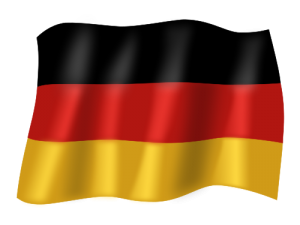Article
Deutsche Glasfaser: Das Netz der Zukunft zieht schon bald in eurer Nachbarschaft ein | NETZWELT (German language / Deutsche Sprache)
From the horse’s mouth
Deutsche Glasfaser
Web site (German language / Deutsche Sprache)
My Comments
Deutsche Glasfaser, a German ISP based in Borken (near Dusseldorf), North Rhine Westphalia, is demonstrating an effort towards bringing high-speed Internet to Germany’s regional, rural and suburban areas.
Deutsche Telekom and Vodafone own most of Germany’s infrastructure-level Internet service. This is primarily copper-based technology, either VDSL using traditional telephone cabling or DOCSIS cable-modem technology using coaxial cabling. They offer their own retail services as well as leasing access to this infrastructure to third-party retail operators like 1&1 and Versatel.
A few operators are establishing fibre-to-the-building or fibre-to-the-premises networks and selling retail high-speed Internet service using these networks. This happens in some major cities. But rural and regional areas were just limited to the Deutsche Telekom or Vodafone offerings which weren’t likely to fare well when it comes to bandwidth or service stability. This is very similar to what happens in most countries when it comes to how areas outside major urban areas are treated when it comes to Internet service.
What Deutsche Glasfaser is doing is creating their own FTTP / FTTB infrastructure in these rural, regional and suburban areas, thus cutting out the copper-based technology that can limit bandwidth due to vectoring or error-mitigation measures. There is also a goal to create a nationwide fibre-optic network across Germany in order to establish some form of independence as far as infrastructure is concerned.
The activity that Deutsche Glasfaser and other city-based operators are doing within Germany is similar to what is going on in the UK. That is where many ISPs are setting up their own infrastructure and offering retail Internet service on that infrastructure that is better value for money than what BT Openreach has been offering.
There will be questions arising about whether these services will be required to wholesale their infrastructure-level broadband capacity to competing retail ISPs and at what point. This may be so where the EU or other groups push Germany to facilitate a lively competitive market for high-bandwidth Internet service.
At the moment, Deutsche Glasfaser is active in 1.3 million households in 13 of Germany’s states and slowly building out in more areas.
Service Packages at time of writing
There is complementary connection and installation for your Deutsche Glasfaser service when you take up one of their packages. This includes “shifting” your Internet and telephone service from your extant provider as well as porting your fixed-line number to their service.
€24.99 monthly introductory offer for the first 12 months of service
| Price per month | Bandwidth | Fixed-line telephony |
| €44.99 | 300Mb/s download / 150Mb/s upload | 2.9c / minute |
| €49.99 | 400Mb/s download / 200Mb/s upload | Unlimited calls to fixed lines in Germany |
| €79.99 | 600Mb/s download / 300Mb/s upload | Unlimited calls to fixed lines and mobile telephones in Germany |
| €89.99 | 1000Mb/s download / 500Mb/s upload | Unlimited calls to fixed lines and mobile telephones in Germany |
As far as I know, there doesn’t seem to be any tariff packages or extensions that allow low-cost or unlimited international calling to popular destinations.
They also offer an IPTV service known as DGTV as an extra-cost option. This has 70 high-definition channels, a PVR set-top box and access to video-on-demand services, It costs €15 per month on top of your Deutsche Glasfaser Internet and telephony package.
What I like of the Deutsche Glasfaser effort is that they are bringing up-to-date Internet technology towards rural, regional and suburban Germany through the use of fibre-to-the-premises or fibre-to-the-building technology. It could stir up others to work on similar projects through that country and through Europe.



